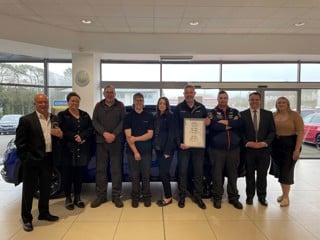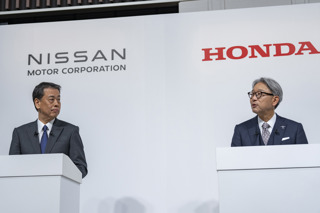Both have launched company-wide reviews to assess the situation.
Many retailers have recently spoken out about their franchise and operational standards, in particular the audit process. It prompted the RMI to set up a working party to look at all issues related to Block Exemption and standards. Volkswagen, Renault and Nissan have come in for the bulk of the criticism.
Ewan Ramsay, Honda UK general manager – cars, says it is time for carmakers to examine their standards. The former boss of DaimlerChrysler Retail UK firmly believes that standards are necessary – a view shared by most retailers – but adds: “There has been a burden placed on the retail network in terms of managing the audit process and check lists. We are now in the process of reviewing this.”
Honda’s review is believed to have started midway through 2005 with each department feeding back the number of processes that dealer principals have to oversee. Ramsay, who rejoined Honda late last year, hopes to be able to announce the conclusions to the dealer council board this summer.
“We need to be confident that our standards will deliver a tangible form of profit benefit to the dealer business. We need a common sense approach,” he says.
BMW recently started looking at its own retail operational standards. Outspoken UK MD Jim O’Donnell believes manufacturers are overburdening dealers, but he also accuses the Government and European Commission of placing their own bureaucratic pressures on the industry. He is meeting BMW dealers in a couple of weeks, with standards one of the items on the agenda.
Despite the operational pressures, both carmakers have retail networks operating above the national average in terms of margin returns, with the top performers exceeding 5% on sales. This year, Honda expects 85% of its retail network to be profitable, compared to 75% in 2005, with some of those remaining in the red due to recent investment in the showroom.
It says “a substantial number” of its 200 dealerships will need to invest in their facilities over the next 12 months. It wants greater correlation between the national profile and local level image as part of the Image Up strategy to position the company as an alternative premium brand.
“A number of dealers need to look at their facilities, in particular the tone, feel and layout, and how it translates back to the customer at a local level,” says Ramsay.
He also wants them to put more focus on used cars as new models like Civic bring conquest business into the network. His target is between 1.5 to two used cars for every new sale. A Product Familiarisation Session (PFS) held late last year was attended by more than 2,000 dealer staff who looked at forthcoming models and the type of customers these would bring to the network.
They were also informed about Honda’s shift in focus towards the corporate market. This year it expects 30% of sales to go to fleet, up from 25% last year, which will help to achieve its 108,000 sales target. Within five years, when Honda wants to be selling 150,000 cars, around half will be to corporate buyers.
It has 22 corporate dealers who focus on larger fleets and leasing firms and 88 B2B dealers – doubled in the past year – who concentrate on smaller corporate business. Honda does the groundwork, providing the dealers with qualified leads.
It will add more B2B dealers this year, up to a total of 100.


















Login to comment
Comments
No comments have been made yet.